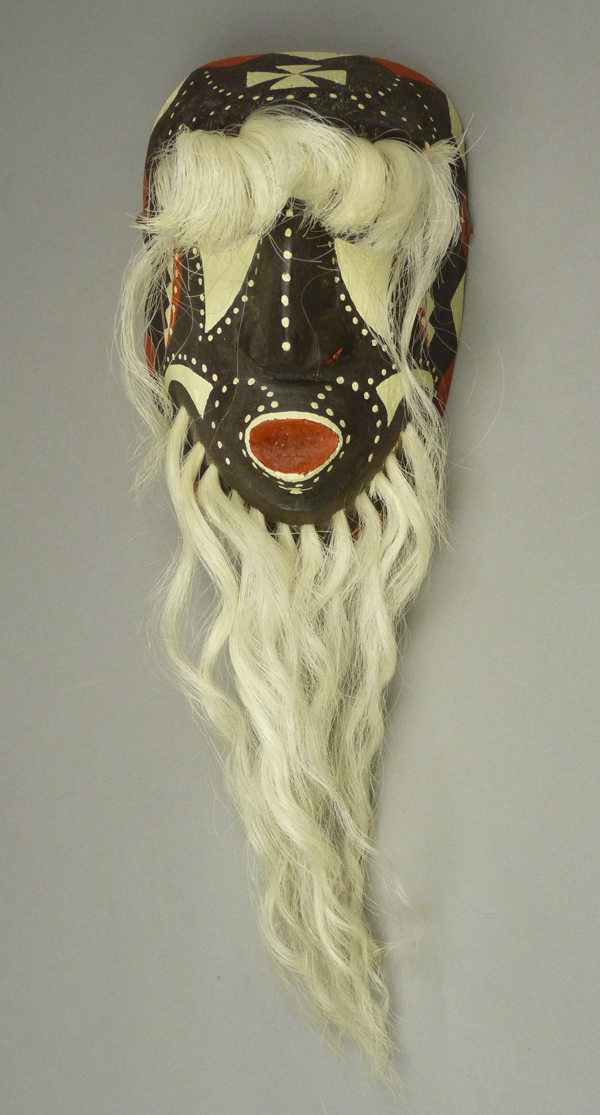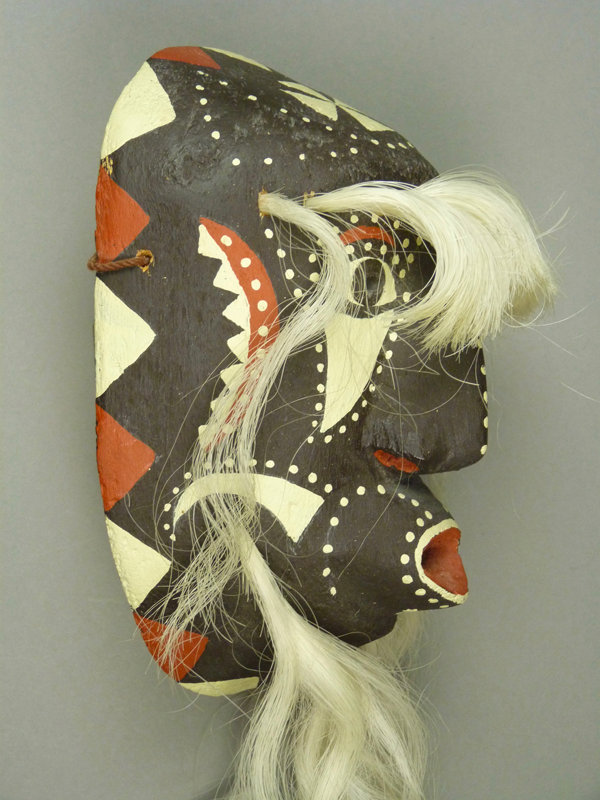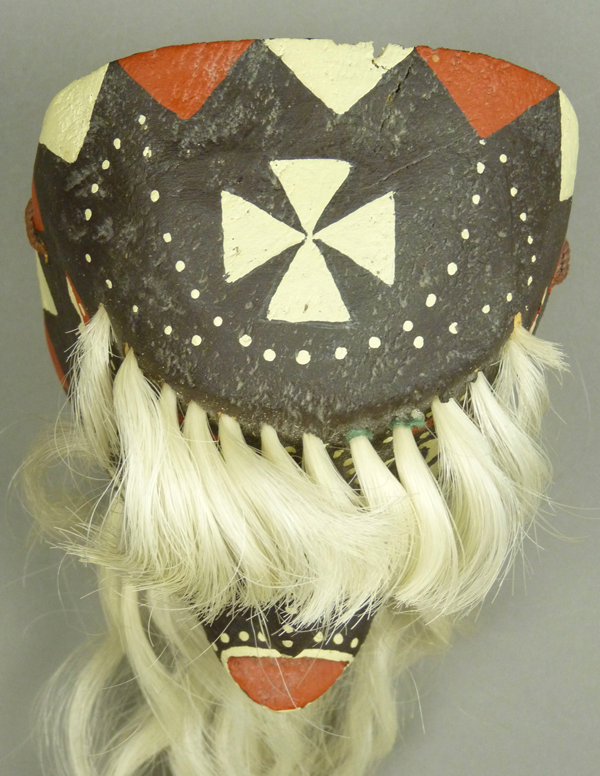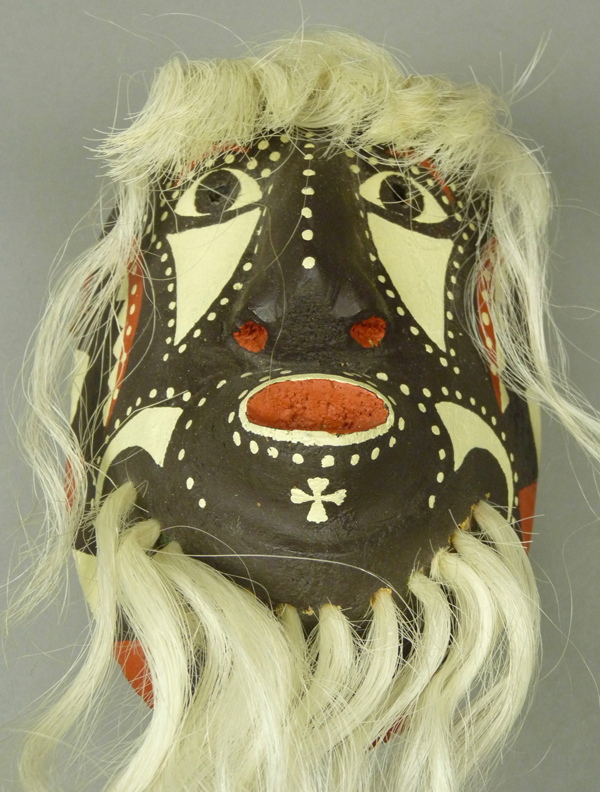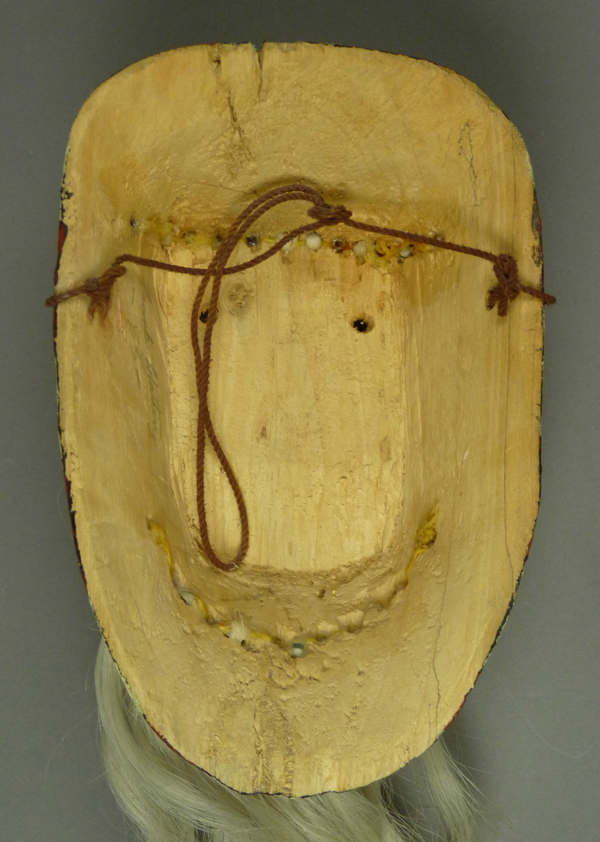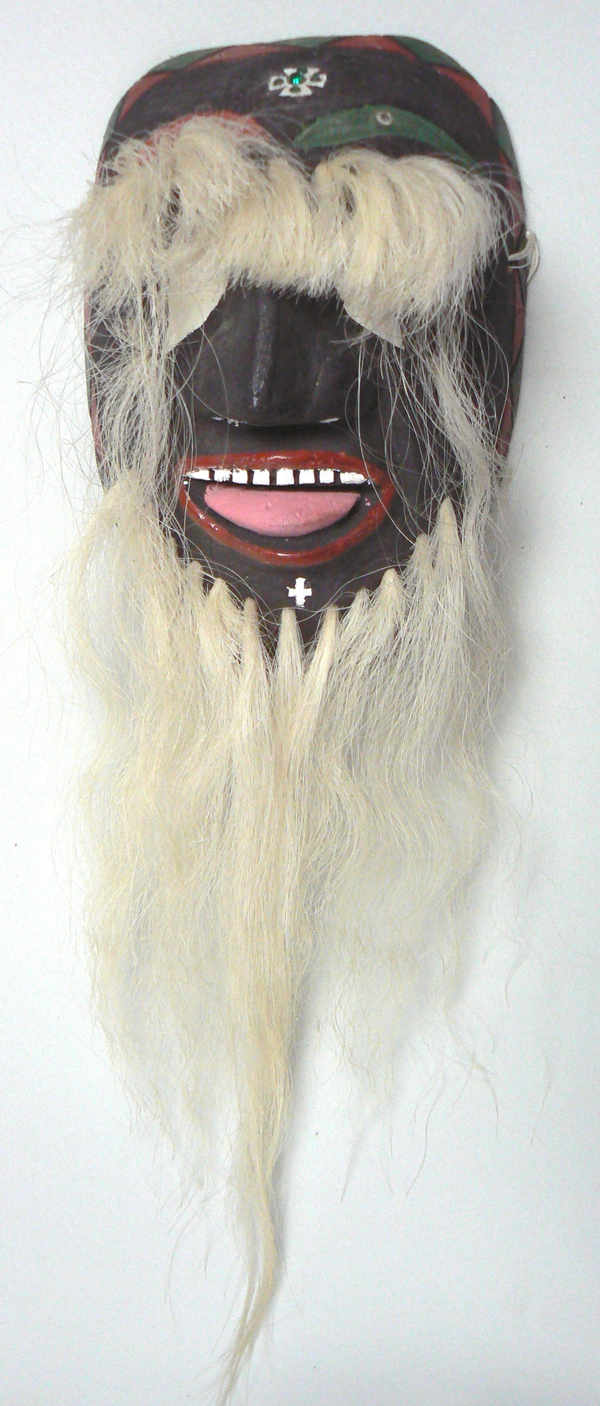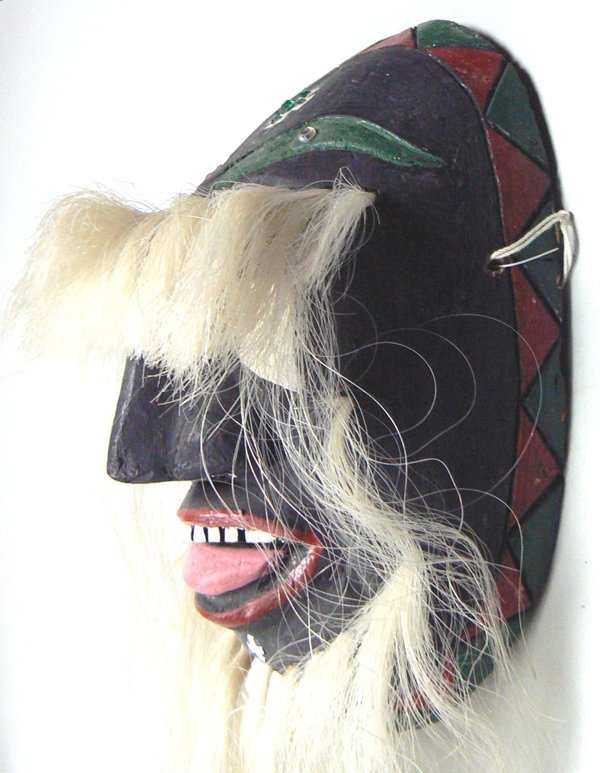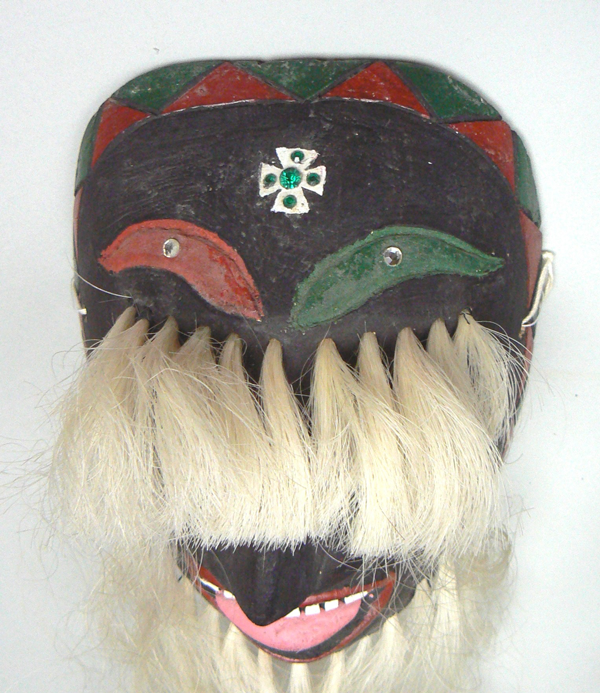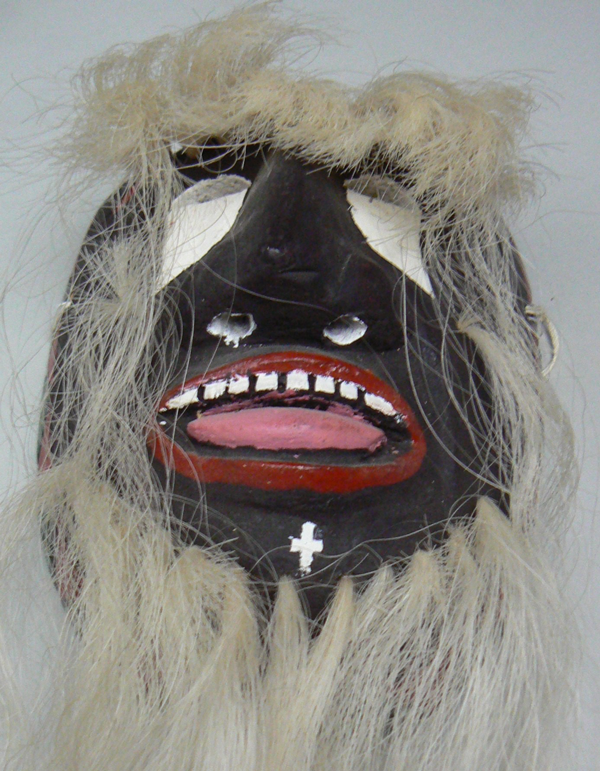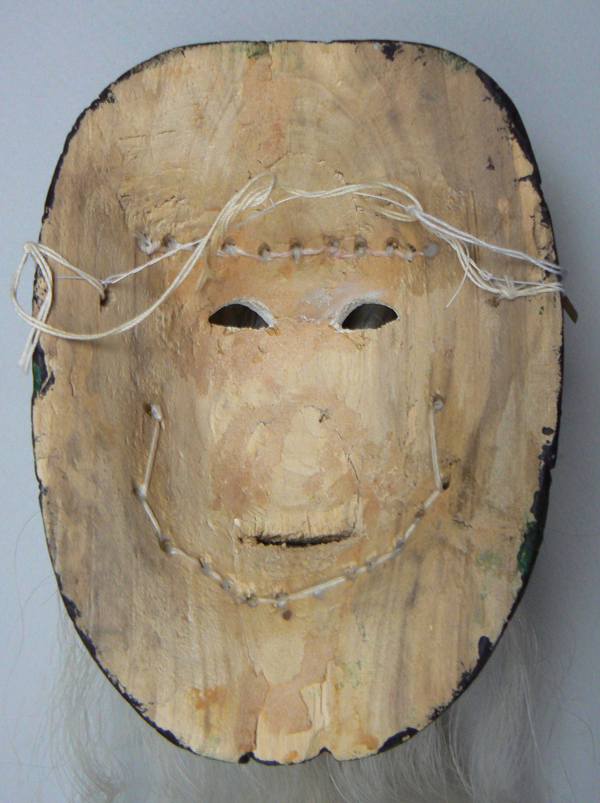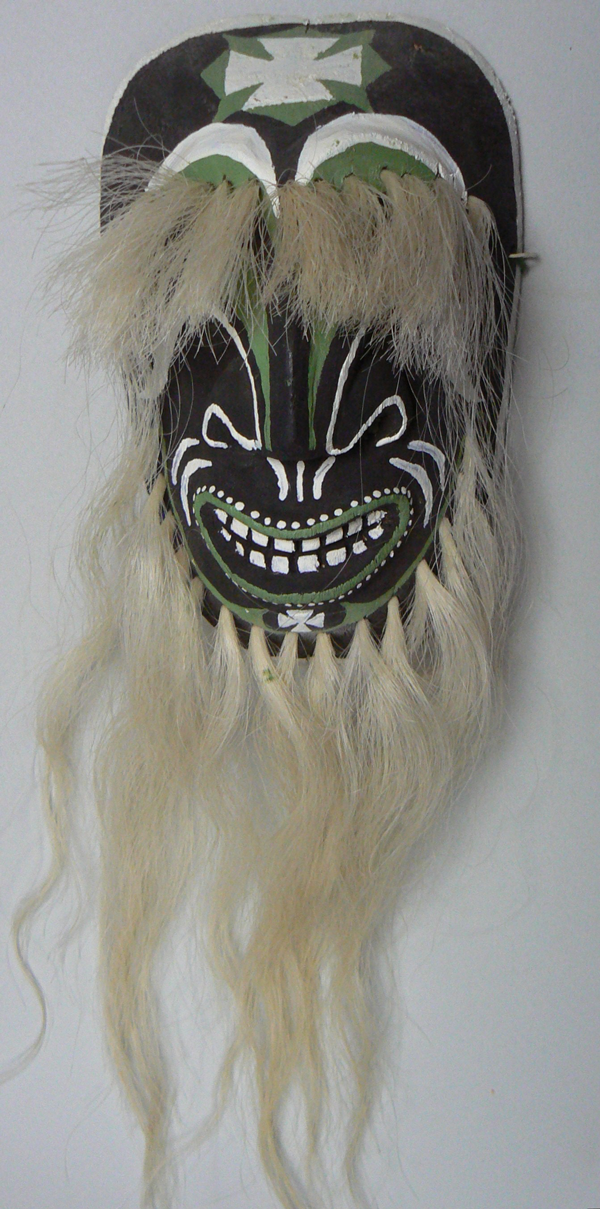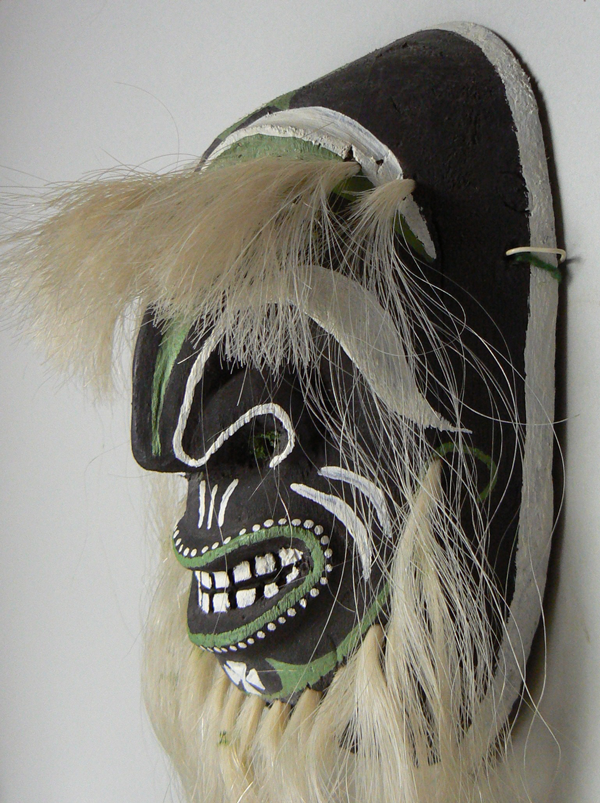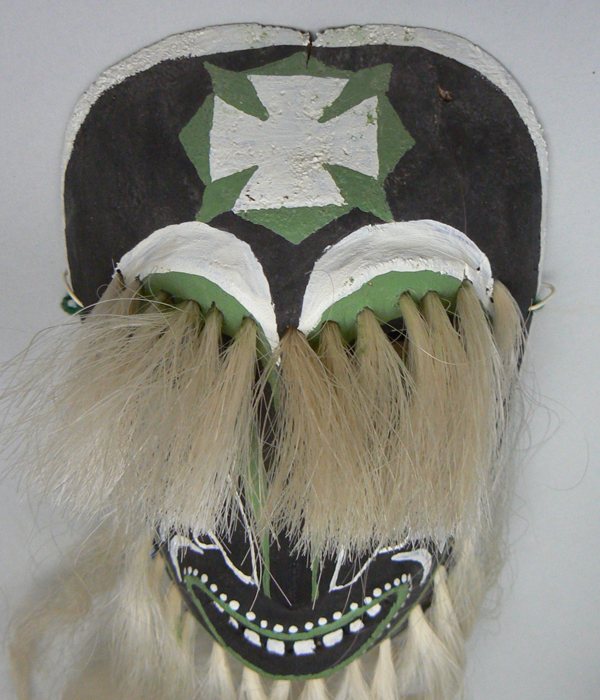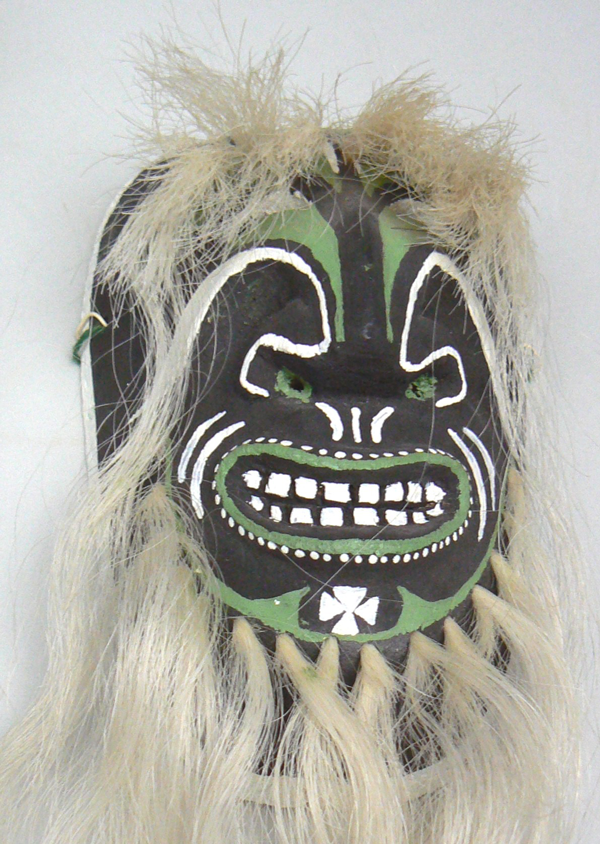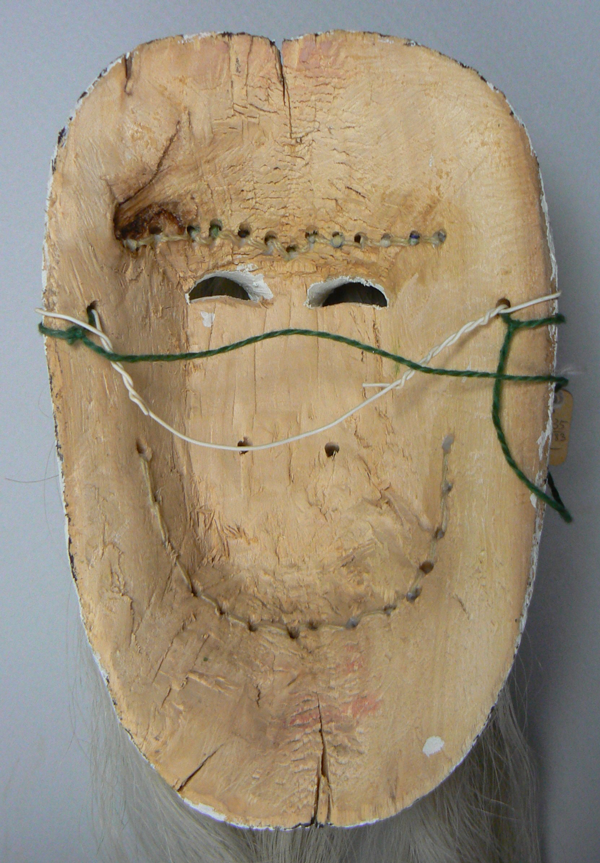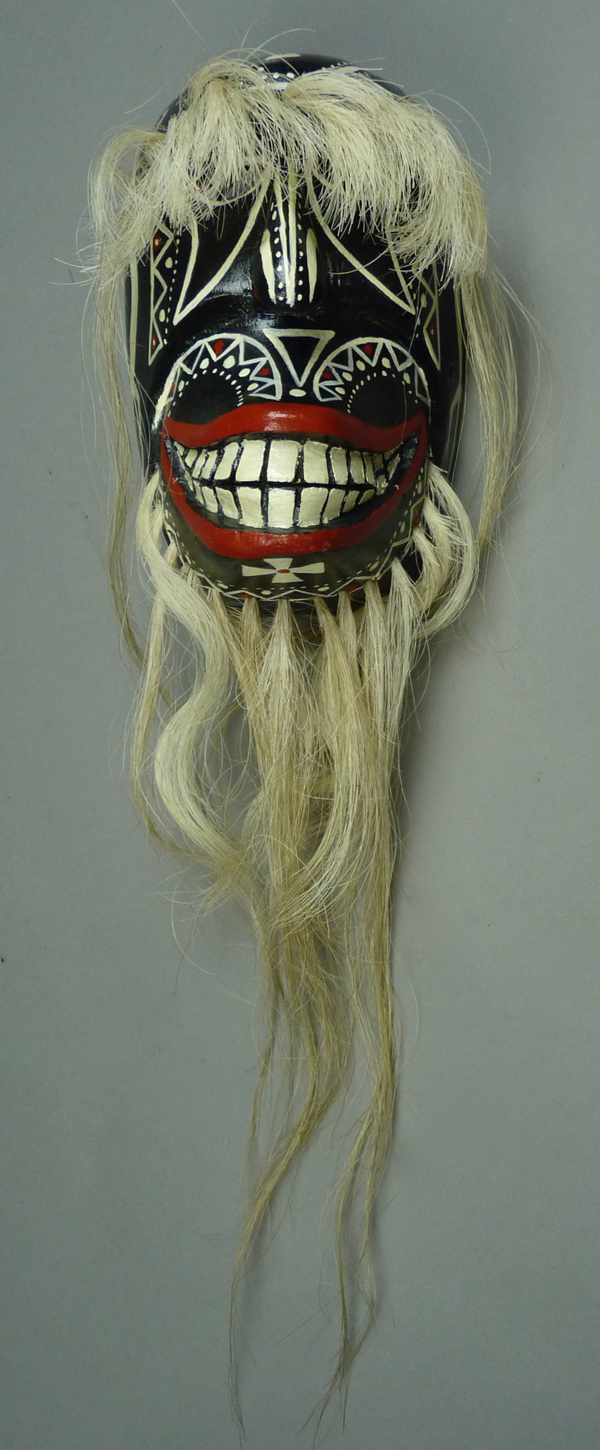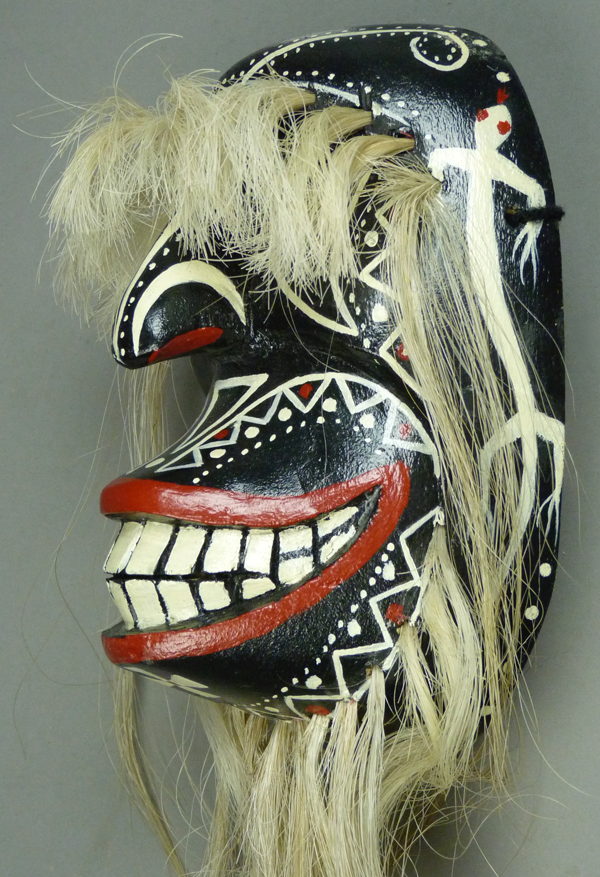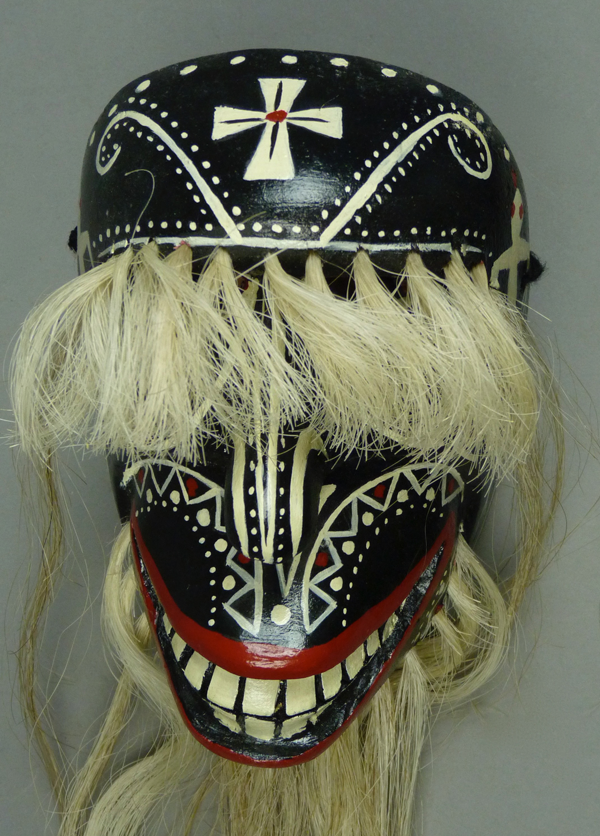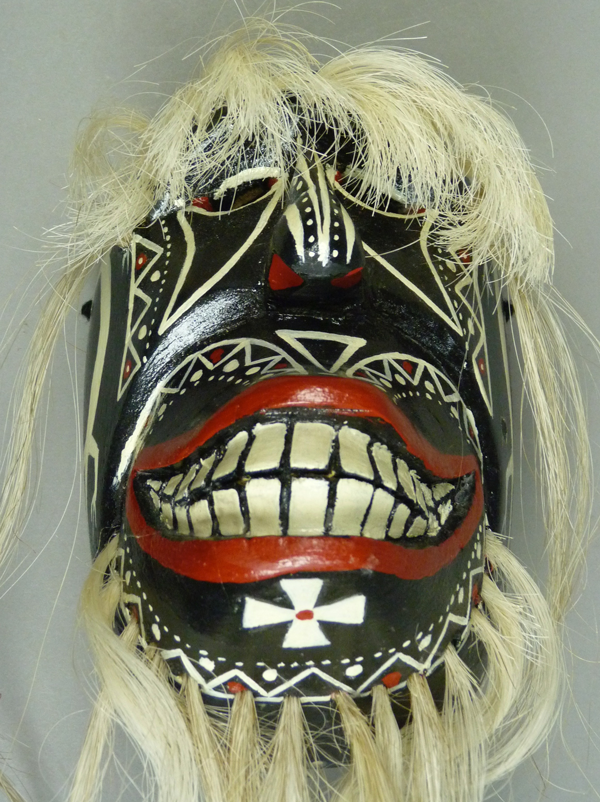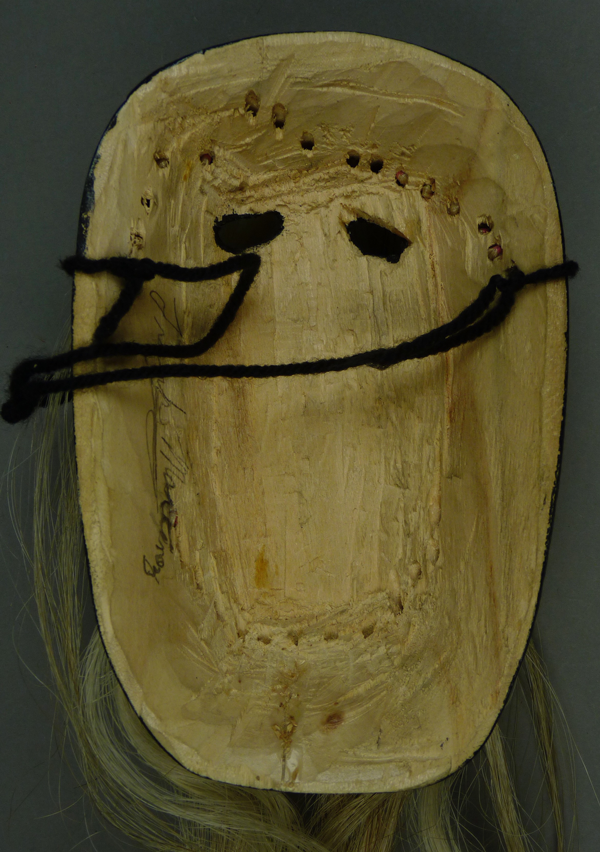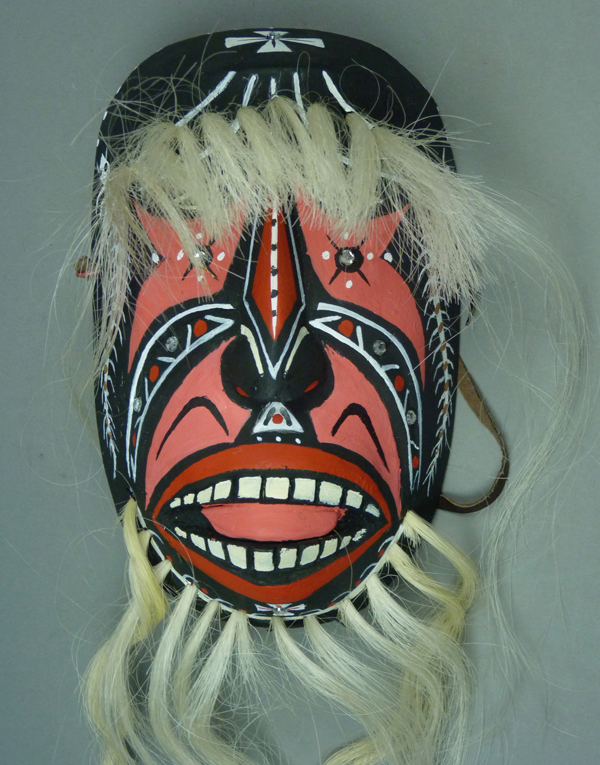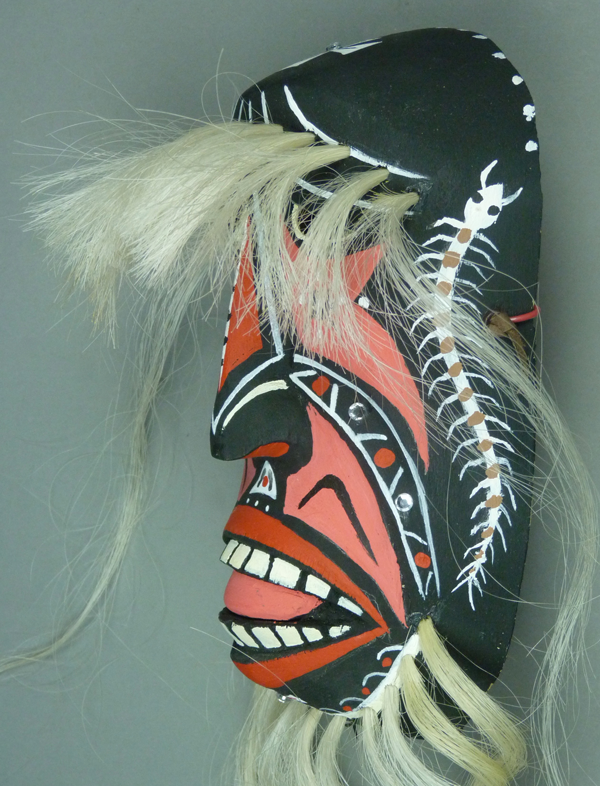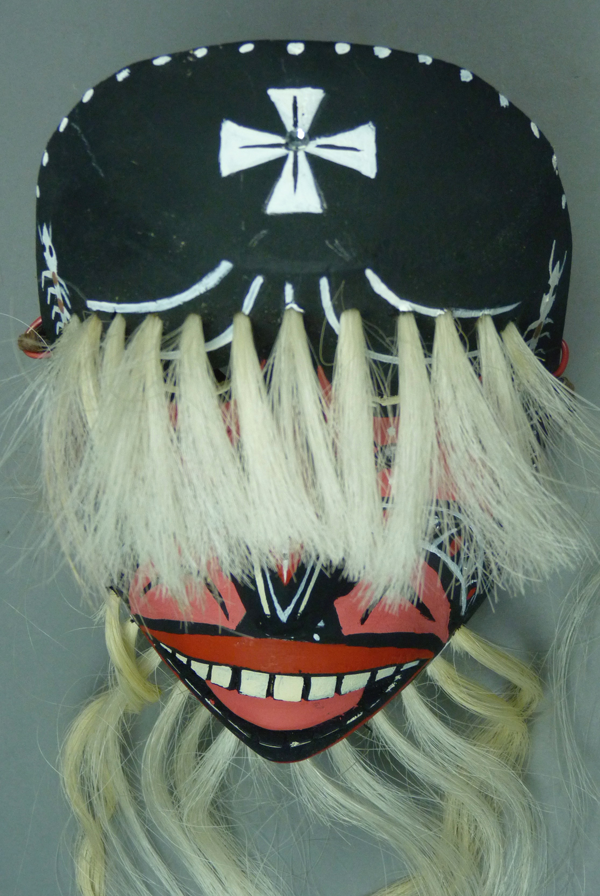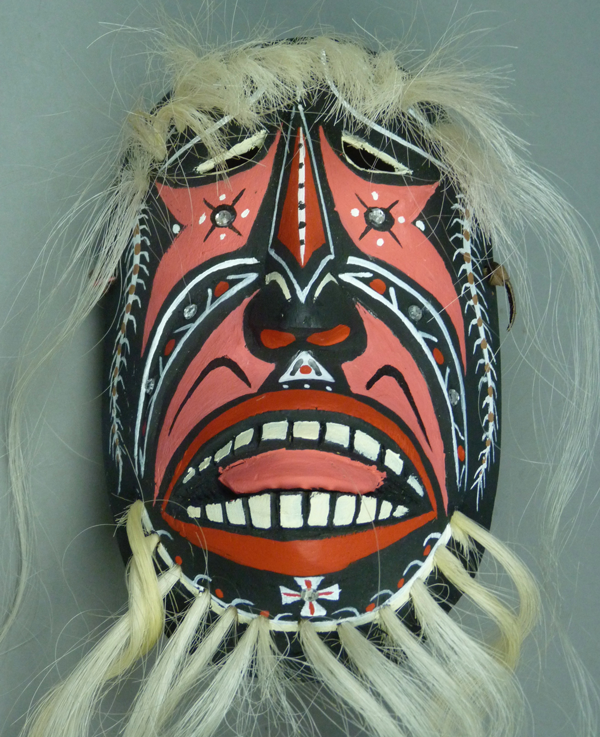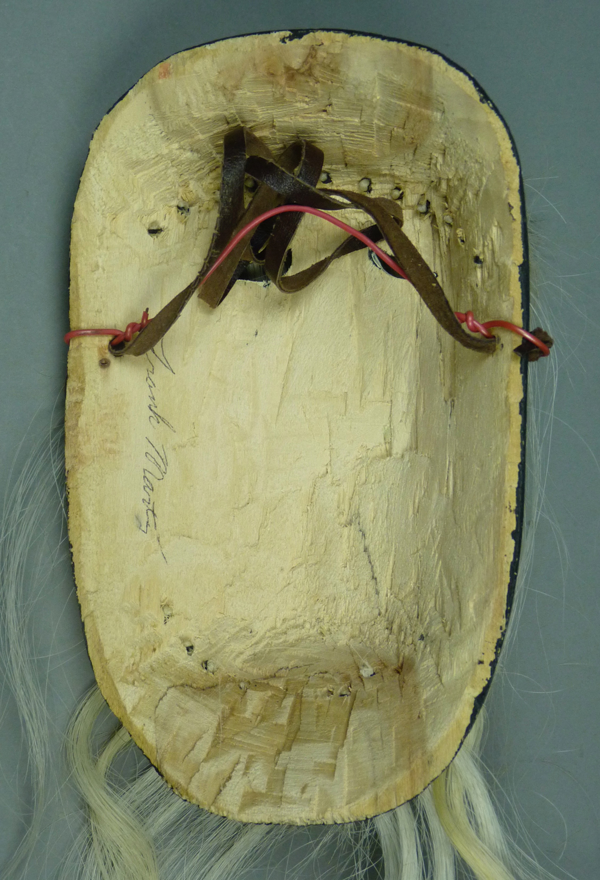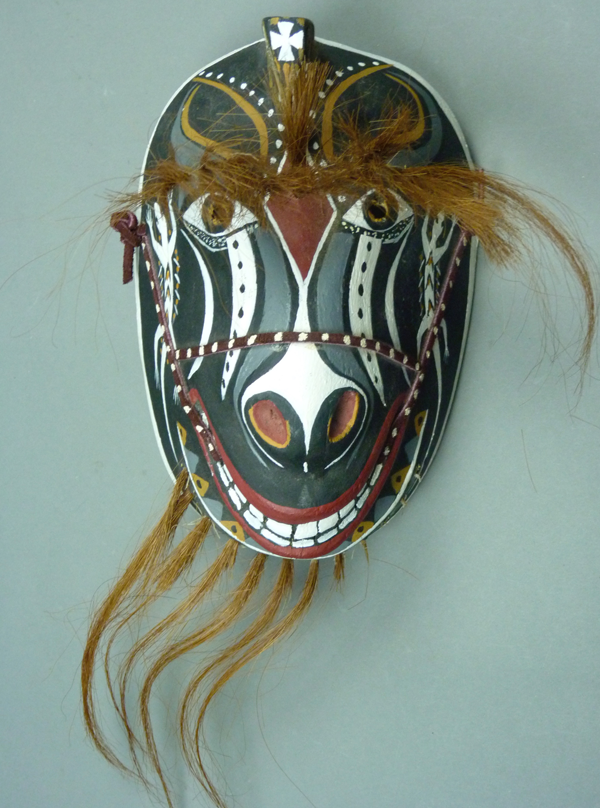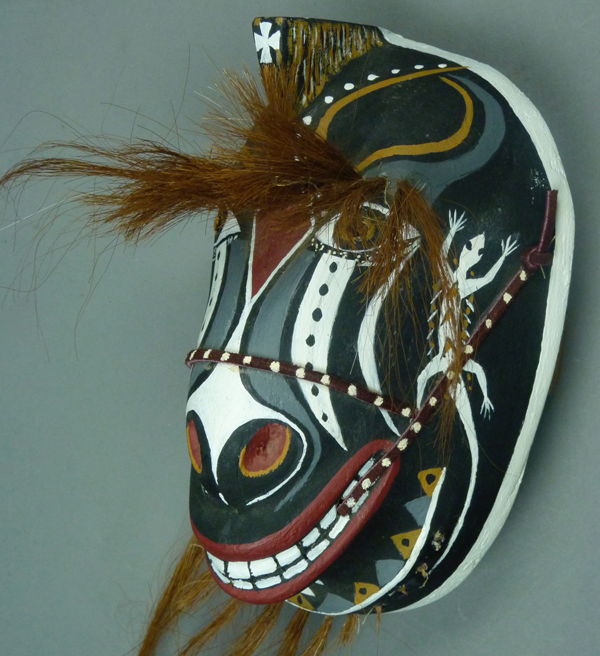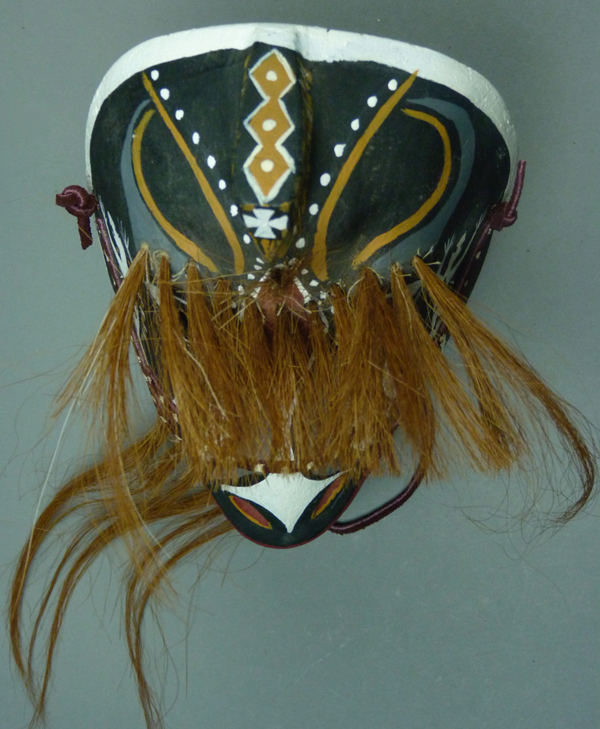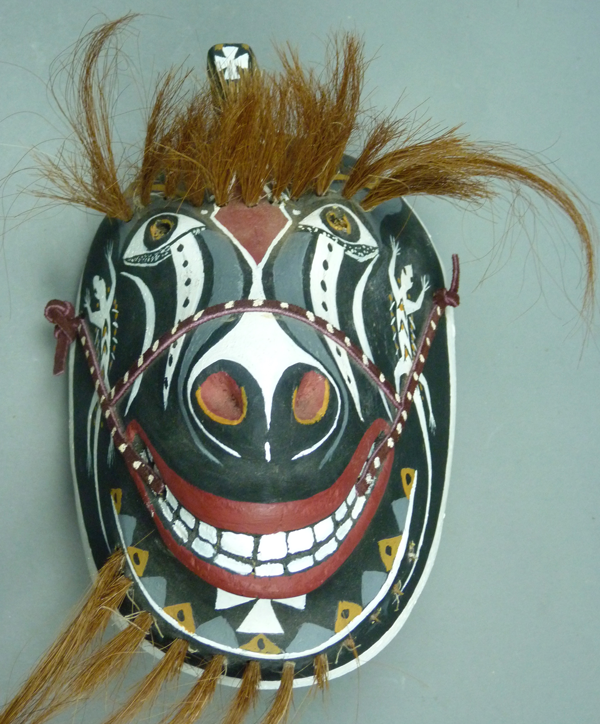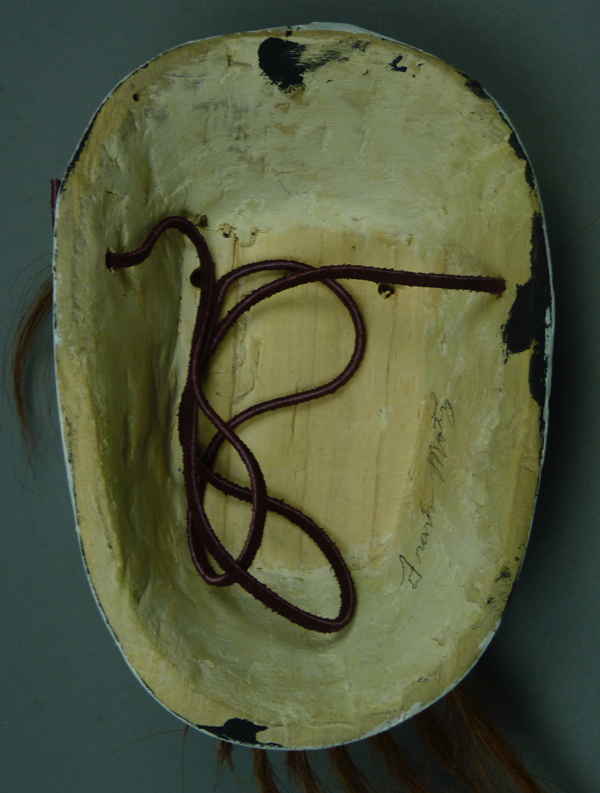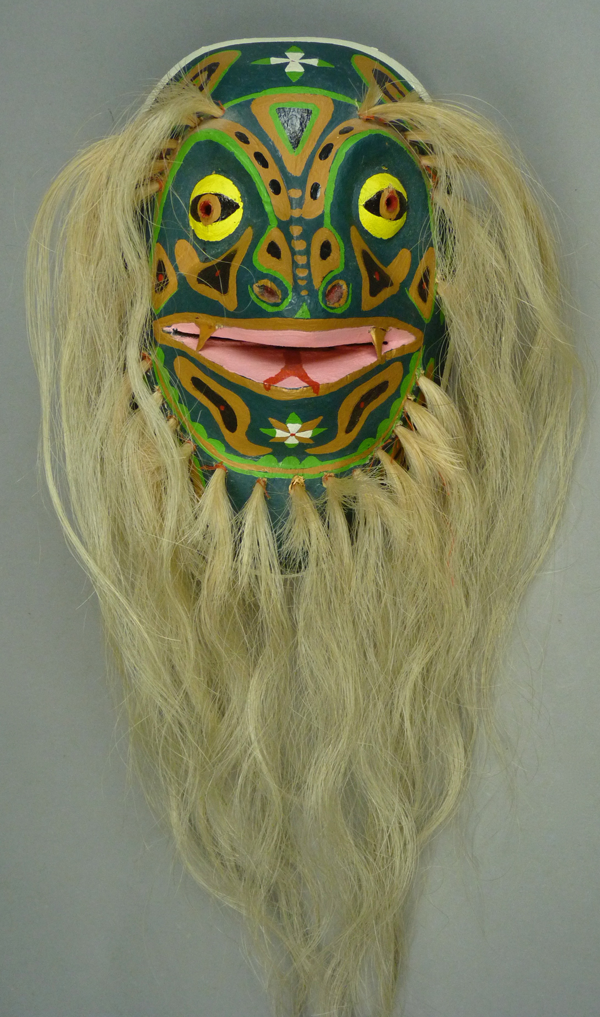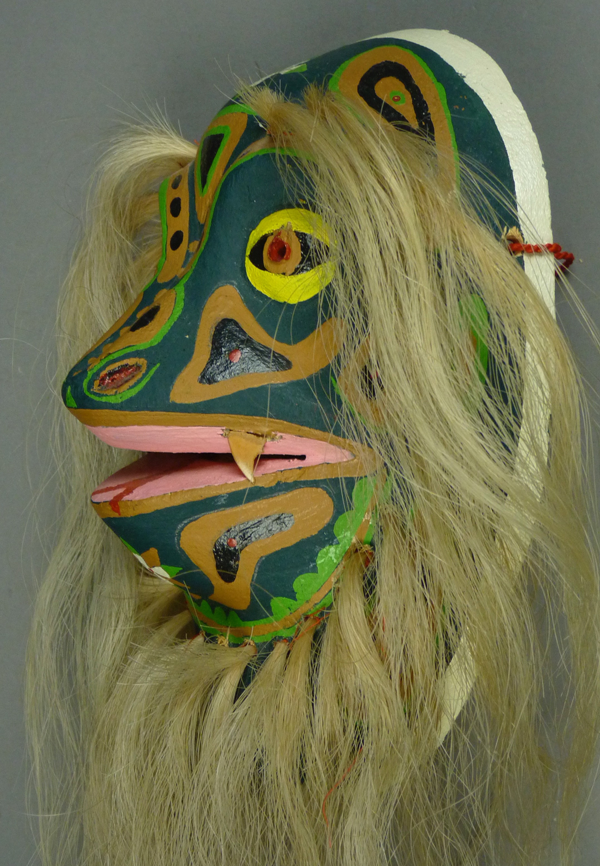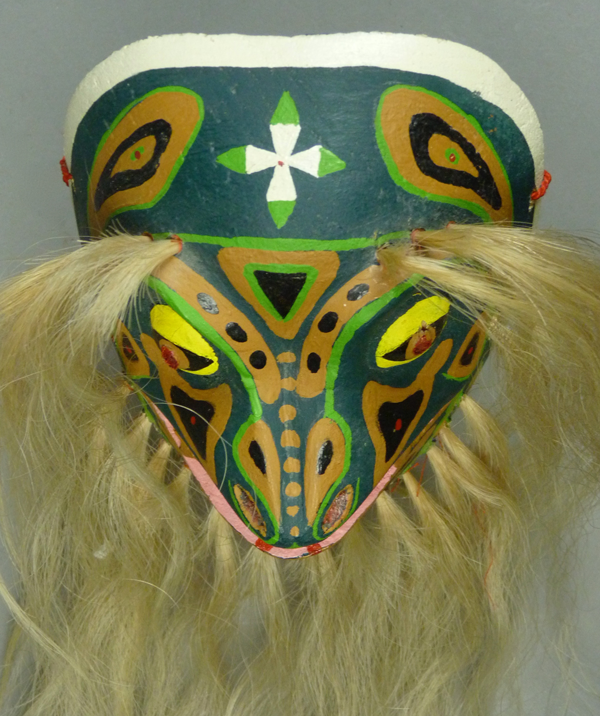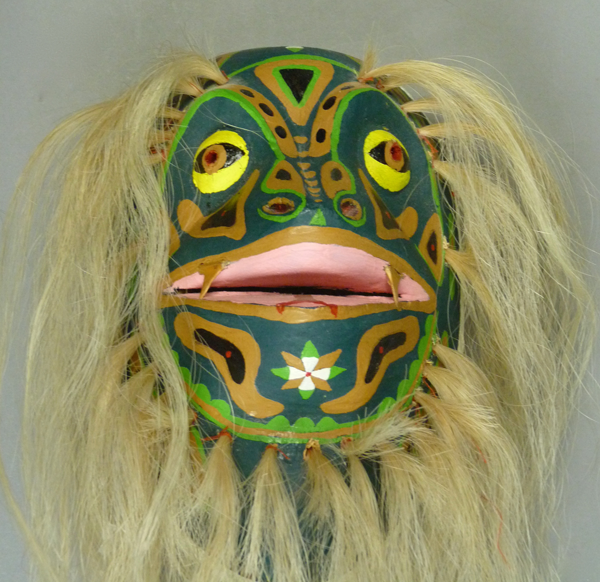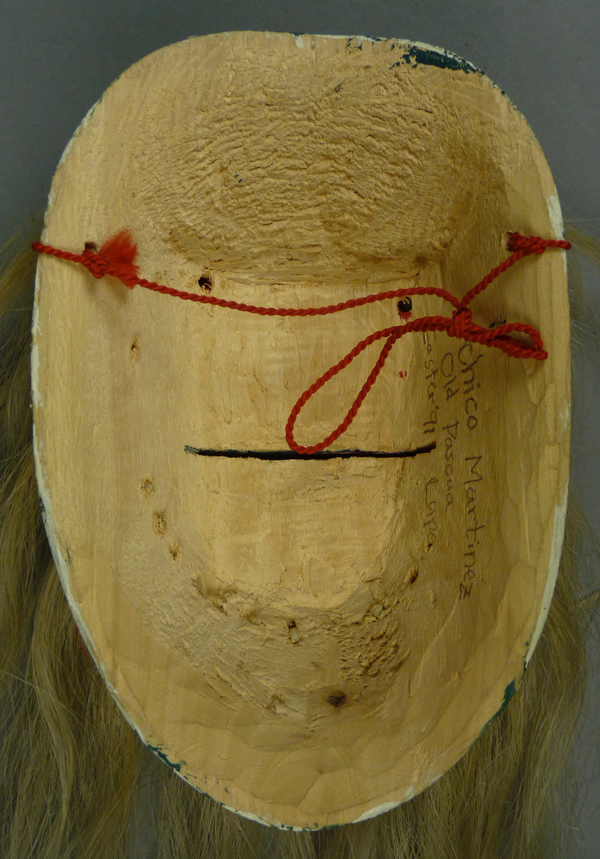This is the first in a series of three posts about Frank “Chico” Martinez, a Yaqui carver who lived and worked in the barrio (or neighborhood) of Old Pascua, in Tucson Arizona. He died in 2006, at around the age of 48 years. According to Thomas M. Kolaz, who knew this carver and his family well, Frank was an active Tucson carver over a period of many years, and he was a mentor to many other Yaqui carvers in this town. Tom showed masks by Frank in two articles that he published in the America Indian Art Magazine:
“Yaqui Pascola Masks From the Tucson Area,” in the Winter 1985 issue (pp. 38-45), and “Yoeme Pascola Masks From The Tucson Communities: A Look Back,” in the Summer 2007 issue (pp. 50- 60). Here is a link to view the second article.
http://www.yoemecarver.com/aiam07.pdf
I had discovered Frank’s masks when I first visited Tucson in 1989. I learned more about him when I met Tom Kolaz, several years later. Today I am going to show five masks by Frank with Human faces, along with a mask with the face of a snake and another with the face of a horse. I will start off with a mask that was originally collected from Frank by Martha Secan in 1985. Martha was a great fan of this carver, and she deliberately bought and sold his masks as a means of supporting him as an artist. She died in 2003. I bought this mask in 2014 from a Tucson woman who had purchased the mask from Martha.
Back in 1985 Frank usually painted his masks with flat colors.
In its general shape, this mask reminds me of those by Rodrigo Rodríguez Muñoz, except that it has such a snouted mouth.
Frank was an excellent carver. However, he frequently made very small openings for vision, as if his masks were not intended to be danced.
This mask is 8 inches high, 5 inches wide, and 3 inches deep.
This mask was never danced. In this view, the limited vision openings are apparent.
The second mask was collected from the carver by Tom Kolaz in 1982. By the time I photographed it in 2012 it had passed into the collection of Jerry Collings, and Jerry graciously permitted me to take these photographs, and those of the next mask.
On this mask Frank used semi-gloss paint.
The red and green eyebrows carved in low relief are a distinctive feature. Both the forehead cross and those eyebrows are decorated with rhinestones.
There is a small cross on the chin.
Again, this mask was never danced, and has only a very light string for hanging.
This is another mask by Frank Martínez that was originally collected from the carver by Tom Kolaz in 1982, and later I photographed it in the collection of Jerry Collings.
While this mask and the one above date to about the same time, they obviously demonstrate considerable variation in style.
This mask has that flat paint, and an unusual shade of green has been used extensively.
The forehead cross has a nice design.
There is a chin cross.
This is another undanced back.
The fourth mask was purchased from the carver on my behalf by Tom Kolaz in 1999. At the very end of the Summer 2007 American Indian Arts article (scroll up for the link), there is a photo of Frank Martínez holding a similar mask, with this explanation—”Martínez said that some of the designs on the masks were taken from bandanas like the one he is wearing.” This is another one of those masks that drew its designs from printed bandanas.
Both the carving and the painted designs on this masks are terrific.
Frank usually used cowtail hair on his masks. This is naturally curly fiber, as you can see in these photos.
There are m/l matching crosses on the forehead and chin.
This mask is 7¼ inches high, 4½ inches wide, and 3¼ inches deep.
There is little if any staining to suggest that this mask was ever danced, but it does have a decent strap and effective vision openings.
I purchased this Apache Pascola mask by Frank Martínez from a Tucson dealer in about 1998. Later I traded it to David West, of the Gallery West in Tucson.
This mask is unusual for its extremely elaborate decoration.
This is another of Frank’s masks with flat paint. You saw this cross on the “bandana mask.”
There are plenty of rhinestones.
There is scant evidence that this mask was ever danced, but it did come to me with a rawhide strap and adequate openings for vision.
The next mask has the face of a horse. I bought it on EBay™ in 2000.
An abbreviated crest on the forehead evidently represents the horse’s mane.
This mask is well carved and nicely painted, yet it has those pinhole vision openings.
There is a small cross on the crest and a larger one on the chin.
This mask is 7½ inches high, 5 inches wide, and 3 inches deep.
Almost all of the masks in today’s post have Frank’s signature on the back, in his own hand, however the next mask does not.
I purchased my third Pascola mask (remarkable for its snake face) by Frank from Lupe Sinoui, the director of the Old Pascua Community Center, in 1991, as usual choosing from a group of masks that Frank had probably made in that year or the one before. Lupe bought such masks directly from Frank. Later I traded it to David West, the owner of Gallery West in Tucson. Here are photos of this Snake faced mask that I took when it was still in my collection.
Frank used a remarkable color palette on this mask.
This is a spectacular mask. The snakes fangs are indicated by thorns from some desert plant.
On the forehead, we see a variant cross design that Frank used frequently. The cross on the chin is even more elaborate.
This mask is 8 inches high, 5 inches wide, and 3 inches deep.
Such a great mask, but only pinpoint eyes! The back was bare when I bought it, and I penciled in the provenance.
Next week, when I continue my review of masks by Frank Martínez, we will look at more animal masks with teeth or fangs.

